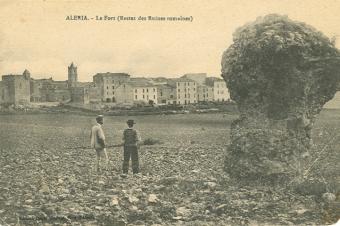
Back to top

Université de Corse
Avenue Jean Nicoli
20250Corte
France
Intervention de Théodora Balmon, Responsable du Service Commun de Documentation (Bibliothèque Universitaire) de l’Université de Corse
Les pôles associés documentaires de la Bibliothèque Nationale de France (BnF) ont pour dessein de conserver et communiquer au public ou de valoriser des collections auxquelles la BnF, pour leur intérêt scientifique et leur valeur patrimoniale, reconnaît un intérêt national. Leur objectif commun de mettre en valeur le patrimoine documentaire par le biais de programmes pluriannuels et de projets diversifiés, conjointement définis. A ce titre, le pôle associé Corse, constitué par la Collectivité de Corse, la Ville d’Ajaccio, la Ville de Bastia et l’Université de Corse Pascal‐Paoli s’assigne trois lignes d’intérêt primordiales : d’abord le signalement des fonds patrimoniaux, anciens, locaux et spécialisés de Corse et leur valorisation. Ensuite la valorisation numérique des collections patrimoniales conservées par les établissements documentaires de Corse. Enfin l’échange de contenus et de pratiques dans la perspective des événements culturels organisés en Corse ; la valorisation par le pôle associé des ressources d’intérêt local et régional de Gallica sur ses sites et auprès de ses publics, sera assurée notamment dans le cadre d’opérations de médiation, afin d’en faciliter la réutilisation.